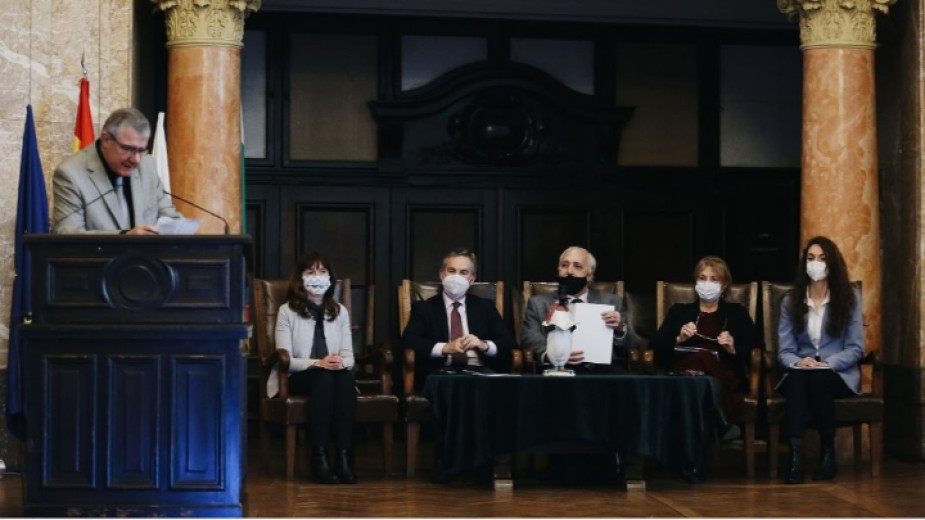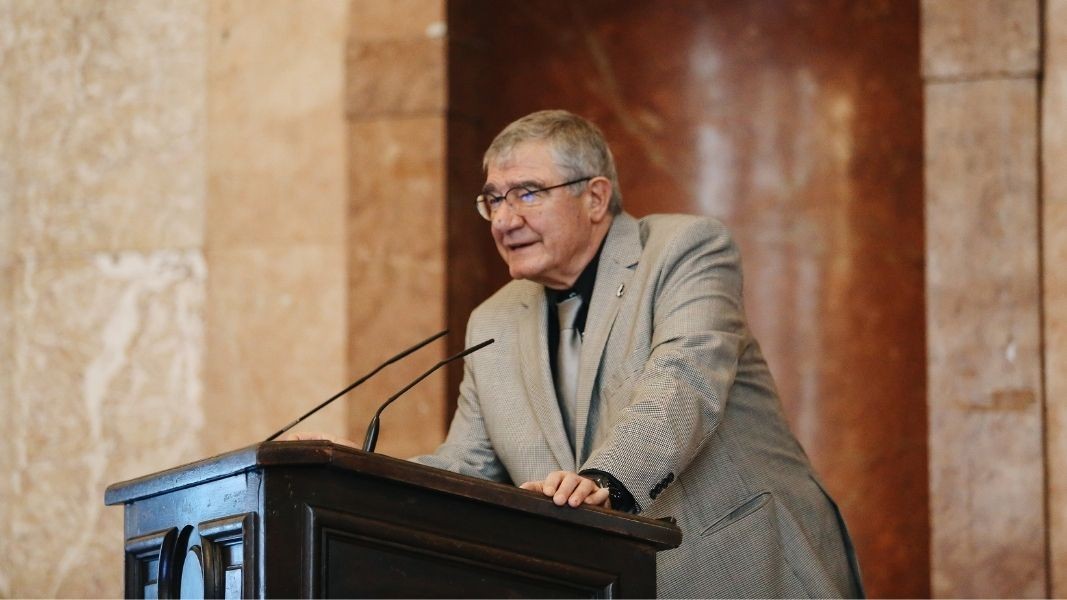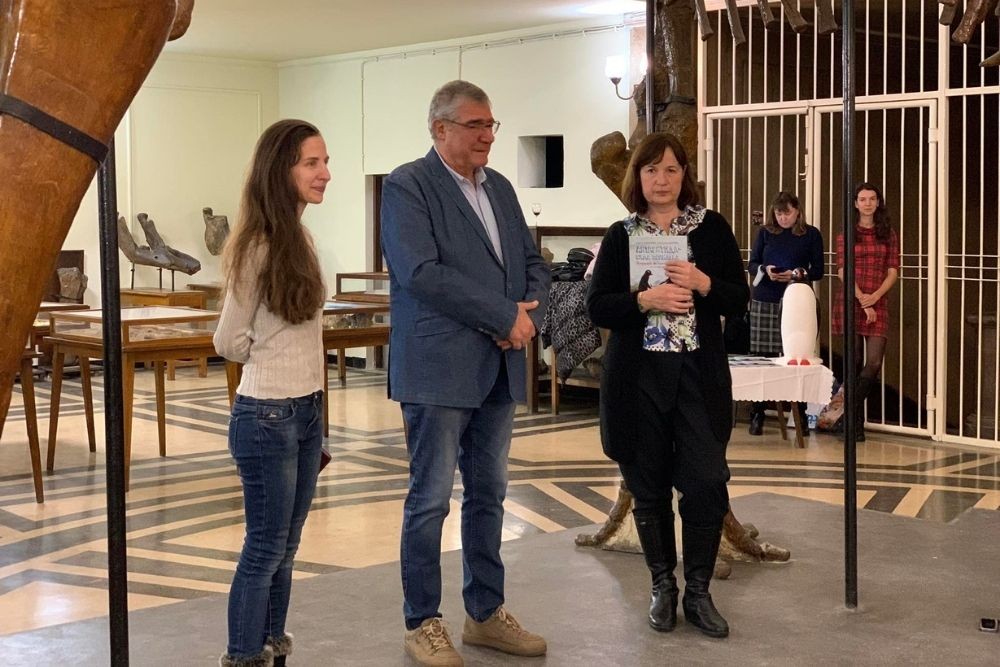 4
4
The Madrid Protocol of 1991 is one of the most important documents for environmental protection. It sets strict rules and criteria for the protection of Antarctica - the piece of land on the Ice Continent that concentrates vast resources of natural resources, incredible biodiversity, known as the largest natural laboratory on the planet. October 4 this year in Madrid marked the 30th anniversary of the signing of the Protocol with an international conference on the protection of the continent with the participation of Bulgaria, as one of the most active countries in the world in the global protection of Antarctica.
The conference also resonated in Sofia, in the hall of Sofia University, where two important anniversaries were celebrated - three decades of the Madrid Protocol and 30 years of successful scientific cooperation between Bulgaria and Spain. Prominent scientists from Bulgaria and Spain have dedicated their work to the conservation and in-depth study of Antarctica took part in this important event.

"We are all residents of Antarctica, although we have never set foot there," said Kitin Muñoz, a renowned Spanish scientist and researcher and UNESCO Goodwill Ambassador. He told about the whales inhabiting the waters of Antarctica, for which a documentary will be made (Whale Nation), which through film distribution around the world will show on the big screen the amazing life of the largest mammal on Earth. In Bulgarian, the film will be voiced by Bulgarian Princess Kalina, wife of Kitin Muñoz.
"Celebrating this event is extremely important here in Bulgaria, where the country's commitment to the Madrid Protocol is maintained and nurtured," said Spanish Ambassador Alejandro Polanco in his address, stressing that in addition to purely scientific cooperation between Antarctic bases "St. Kliment Ohridski ”and“ Juan Carlos I ”on Livingston Island, the two teams have built warm friendly relations, which also contribute to better international cooperation between the two countries.

The work of the Bulgarian Antarctic researchers is invariably connected with Professor Hristo Pimpirev, Director of the Bulgarian Antarctic Institute, who stressed the importance of the Ice Continent for the life of all mankind and the need to preserve it as a place for peace and research and preserve it as such for future generations.
Prof. Pimpirev told Radio Bulgaria more about the difficult beginning of this year's Bulgarian expedition.

The expedition started and the base was open for two hours, but the weather was extremely bad. There was a large icebreaker on the shore with blocks of 200-300 kilograms, which collided with the danger of injuring someone. Only seven people managed to reach the Bulgarian base. They opened it, took out the machines, and waited for the others, but the captain decided not to drop anchor any more, and the seven members of the expeditions returned to the ship. For the first time in the 30-year history of the expedition, the base will be opened twice. The ship returned to South America, leaving the Bulgarian polar explorers on King George Island, where they were sheltered at the Uruguayan base Artigas. They are in good condition, and I expect them to leave again, which I hope will happen for Christmas, so that they can celebrate the holidays at the Bulgarian base. This delays the implementation of the program by more than 10 days. The group that was supposed to build the foundations of the Bulgarian science laboratory will return a little later, will spend some time together with the scientists who will travel in mid-January, but in Antarctica nothing is predictable and depends very much on the weather conditions. "

Prof. Pimirev is the author of a children's book inspired by the true history of the Ice Continent. The premiere of the edition took place a few days ago:
"This is a very nice book based on the true story of the penguin Gosho, from our second expedition in 1993-1994. At that time we found a wounded penguin and we took it with us. The animal didn't want to eat any food except from his penguin female mate, who brought him food because the penguins are monogamous and live in pairs. He limped slightly, but they both left, and then every year he waited for us to come ashore. In the book, the penguin Gosho tells about his life in Antarctica, about his meeting with the Bulgarians and the leopard seal, from whose teeth he escaped, and about how we saved him”.
The exhibition "30 years together in Antarctica" is arranged in the lobby of Sofia University. It shows curious moments from the life of the Bulgarian base on Livingston Island. The photos have been collected and released in an album with the same title.
English Rositsa Petkova
Photos: BGNESAthens plans to modernise the Greek army by 2030 Greece's Defence Minister Nikos Dendias presented the plan for changes in the army to the parties in parliament. The reforms will cover all three branches of the military. By 2030, 33 units..
A short video kaleidoscope of the "untold stories" of worthy Bulgarians - scientists, entrepreneurs, engineers, artists - who have contributed to our country's good image in the eyes of the world opened an unconventional public forum that showcased the..
The film "Gundi: Legend of Love" caused a sensation across the Ocean. Screenings of the film story about the life of legendary football player Georgi Asparuhov – Gundi were held in Los Angeles and Las Vegas as the halls were full...
The Varna Regional Library "Pencho Slaveykov" has acquired a humanoid robot. It was unveiled by the library's director, Radka Kalcheva, during the..
1000 participants will take part in the first Burgas Half Marathon, which will take place this Sunday, 24 November. The event will bring together..

+359 2 9336 661
